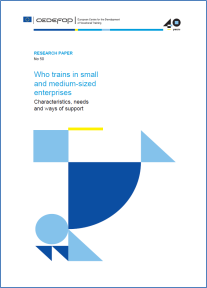Cedefop, in cooperation with ReferNet partners, is developing a new tool that will allow the mechanisms promoting the mobility of VET learners to be compared among EU Member States, Norway and Island. Cedefop presented the results of this work, a prototype of the tool, on June 3, 2016. A full version of the tool will be officially launched during vocational education and training week in December of this year.
This new tool is directed primarily to decision-makers and stakeholders, as it will enable them to broadly assess the structure, policies and results of learners’ mobility. Maps, graphs and tables will allow comparisons to be made of the situation in all EU Member States.
More information is available at the Cedefop website





